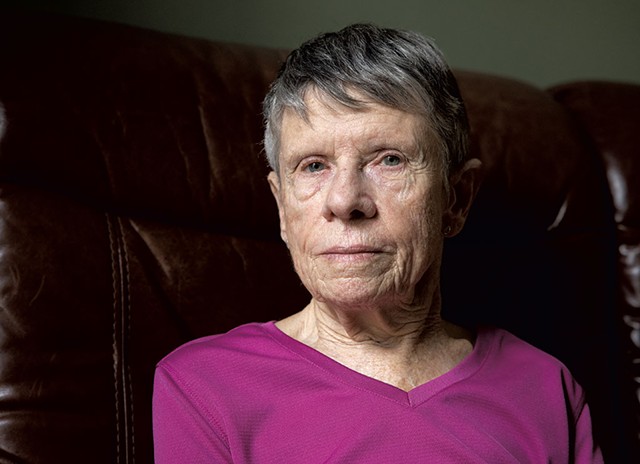
- James Buck
- Rita Mannebach
Two days before she drank a cocktail of medications that would end her life, Rita Mannebach said she was not afraid.
"I don't know what happens after we die — if anything," 84-year-old Mannebach told a Seven Days reporter last week, her small frame tucked into the corner of an oversize couch in a rented house in Burlington. "And I'm not worried about it."
Mannebach, a Florida resident with terminal lung disease, had no connections to the Green Mountain State. But last week, she chose to die here because Vermont is one of just two states that allow nonresidents to pursue medical aid in dying, an option for patients with fewer than six months to live. A local doctor prescribed the medication that ended Mannebach's life.
Vermont has had a so-called "death with dignity" law on the books since 2014. Until last year, only a state resident could use it. Lawmakers lifted that requirement in May 2023 after a lawsuit filed by Lynda Bluestein, a Connecticut woman with stage IV cancer who wanted to die in the state. She ultimately did, in January, using the newly passed Vermont law. About two dozen people from out of state have done the same in the past year, data show.
Mannebach flew from Orlando to Burlington with her husband, brother and sister-in-law about three weeks before her death so that she could meet with doctors, transfer her hospice care from Florida to Vermont and settle into her rental. Before a patient is prescribed the life-ending medication, a doctor must confirm that they are mentally sound and have met all of the law's requirements. A terminal patient must also make two oral requests to a doctor for the drugs at least 15 days apart and provide a written request they signed in the presence of two or more witnesses.
Mannebach had done those things by last week, and the time she had chosen was fast approaching.
Mannebach — dressed in a fuchsia top and khaki pants, delicate studs in her earlobes and an oxygen cannula in her nose — said she'd come to believe over the years that the body is just a vehicle for energy. Hers was no longer serving her.
"What's the point of being in a body if the body can't do anything?" Mannebach said.
A former teacher, school counselor and principal, Mannebach spent the last chapter of her life becoming intimately acquainted with death. For 15 years, she volunteered as a hospice worker and end-of-life doula in Florida, where she retired with her husband, Al, in 2005. She'd witnessed the suffering that patients and their families often experience as they reckon with prolonged, debilitating illness.
"I knew so many people I worked with who said, 'Couldn't you just give me something?'" she recalled. "'Does it have to take this long? Why does it have to be this way?'"
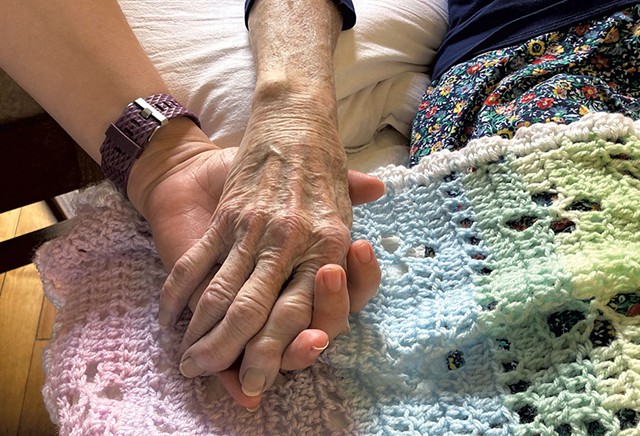
- Courtesy Of The Family Of Rita Mannebach
- Mannebach holding hands with a family member as she dies
Around three years ago, Mannebach began advocating for the passage of a law in Florida that would allow terminally ill patients to use medical aid to end their lives, working with a nonprofit called Florida Death With Dignity. Tony Ray, president of the organization, said Mannebach was one of the earliest and most steadfast volunteers, giving presentations and asking people to sign petitions of support.
Mannebach said she was driven to join the cause because of her belief that people with terminal illness should have the option to decide that "it's too much for me. It's too much for my family. It's too much."
"And on the other end, why the heck is anybody legislating when we die?" Mannebach said with a soft chuckle.
A little over a year ago, doctors found a shadow on Mannebach's lung during a CT scan. They wanted to do a biopsy but Mannebach declined, knowing that she didn't want to go through chemotherapy if it was, indeed, cancer. Life was fine for about a year, she said. Then, in March, she was diagnosed with bacterial pneumonia and things started going downhill, fast. She hoped that she might recover, but when it became clear that she wouldn't, Mannebach began hospice care and started seriously thinking about using medical aid in dying. Florida has not passed a law allowing the option.
She asked her brother, John Cummins, to research out-of-state options. Only Vermont and Oregon allow nonresidents to use their laws. Cummins, who lives in Berkeley, Calif., came across the website of Patient Choices Vermont, a 20-year-old nonprofit that works to educate medical professionals, hospice organizations and the public about medical aid in dying. The organization was instrumental in passing the state's initial death with dignity law in 2014.
After Gov. Phil Scott signed legislation that lifted the residency requirement in May 2023, Patient Choices started getting an influx of inquiries from people outside Vermont, said the organization's president, Betsy Walkerman. Around six months ago, Patient Choices established what they call a "Wayfinders Network," a group of hospice nurses, case managers, end-of-life doulas and social workers who help patients and their families, from Vermont and other states, navigate the complex process of qualifying for medical aid in dying.
Cummins spoke with Meg Tipper, a Wayfinder who recently completed the University of Vermont's end-of-life doula certification, then connected her to his sister. A series of Zoom meetings followed in which Tipper was able to determine that Mannebach was a good candidate for using the law. The women talked through Mannebach's needs and wishes, and Tipper helped her connect with a doctor and hospice care providers in Vermont. She also helped Mannebach find a place to stay in the weeks before her death.

- James Buck
- Mannebach's "transformation board" with photos from her life, including a reference to Vermont MAID (medical aid in dying)
"She has been an amazing client to work with," Tipper said, citing Mannebach's "level of self-awareness and thoughtfulness about other people."
Since she began serving as a Wayfinder in April, Tipper has spoken with 14 people from out of state about Vermont's medical-aid-in-dying law. She assisted one other client in actually using it.
People with a terminal diagnosis "are really desperate for help and a way forward," Tipper said. To assist in carrying out someone's wishes to die in the way they want while minimizing their pain and suffering is a privilege, she added.
On July 9, Mannebach described to a reporter what the last days of her life would look like. Family members were already in town or arriving soon, and 12 of them would sit down for something akin to a "typical holiday dinner" the night before her "day of transformation," with storytelling and speeches.
"I will die here," Mannebach said matter-of-factly, motioning to the couch, "but first we'll have a circle of chairs and do some symbolic kinds of things — we'll have a few readings and some music and something that symbolizes letting go by hugging — holding on and letting go."
Less than 48 hours later, Mannebach presided over her own memorial service, surrounded by children, grandchildren, siblings and other relatives. Tipper was there, as were a nurse and a social worker. There were songs — including "Turn! Turn! Turn!" by the Byrds and "I Hope You Dance" by Lee Ann Womack — and passages that resonated with Mannebach. One of them, written by physicist Lawrence M. Krauss, began with the line, "Every atom in your body came from a star that exploded."
Mannebach also gave a presentation on why she chose to use medical aid in dying, remaining "true to her role as a teacher to the very end," Cummins said later.
Then, at 1:05 p.m. on July 11, Mannebach shed the body that was no longer serving her, two hours after consuming the prescription.
It was peaceful and moving, Cummins said. It was just what Rita wanted.




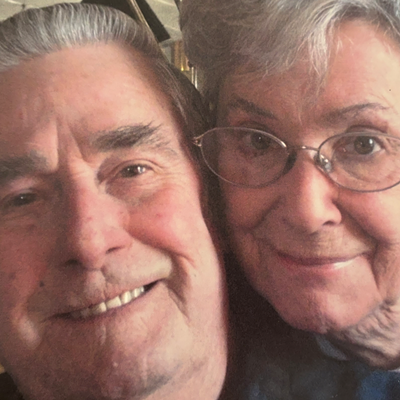
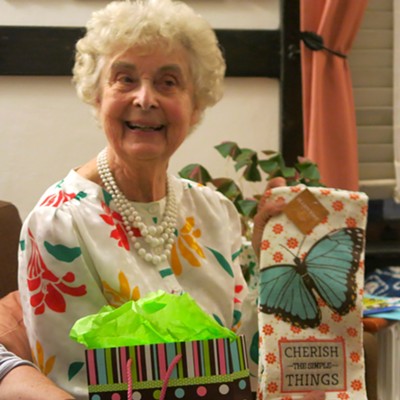
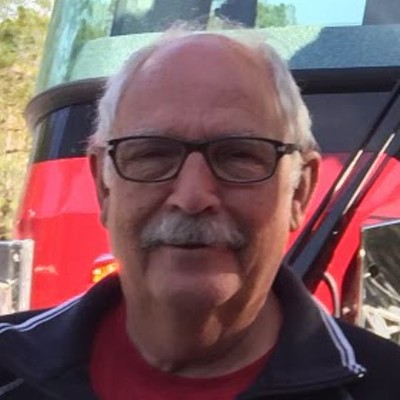
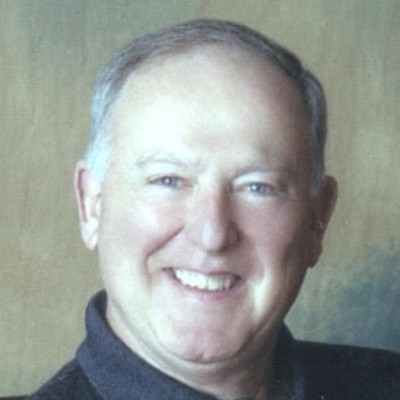
Comments
Comments are closed.
From 2014-2020, Seven Days allowed readers to comment on all stories posted on our website. While we've appreciated the suggestions and insights, right now Seven Days is prioritizing our core mission — producing high-quality, responsible local journalism — over moderating online debates between readers.
To criticize, correct or praise our reporting, please send us a letter to the editor or send us a tip. We’ll check it out and report the results.
Online comments may return when we have better tech tools for managing them. Thanks for reading.